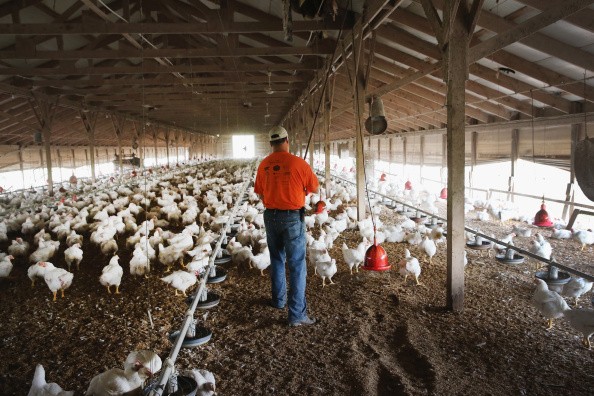
Farm workers at large turkey, chicken, and egg farms are being offered antiviral medications as a precaution against the H5N2 bird flu that has hit poultry farms hard. This strain of flu has infected flocks of turkeys and chickens in the Midwest, but has not affected people. However, as with all strains of influenza, this flu can change easily and rapidly, and could infect the people who work day to day with the affected poultry.
The U.S. Centers for Disease Control and Prevention has said that it does not think that this strain will spread to humans, but that it has isolated H5N2 for use if a human vaccine is needed.
The infected flocks are being killed and infection control measures have been stepped up on the farms that have been hit by this flu. Those culling the flocks are wearing full protective suits and using respirators. About 13 million chickens and turkeys have been killed or are slated to be killed to stop the spread of this outbreak. On one egg farm alone, about 3.8 million chickens had to be killed.
About 300 poultry farm workers in four states have been told that they should take Tamiflu, a prescription antiviral medication as a precaution. The states are Minnesota, Wisconsin, Iowa, and South Dakota.
However, not everyone is taking the antiviral drugs. Infected turkey farms in South Dakota are owned by members of a Christian sect called the Hutterites who are similar to the Amish, and who do not want to take Tamiflu.
The bird flu outbreak started last summer when the H5N1 strain of the virus form a hybrid strain with flu in wild birds in Siberia. Migrating wild birds then spread that strain to the United States, where it further mutated into the H5N2 strain. H5N2 is also affected poultry operations in Ontario, Canada.



